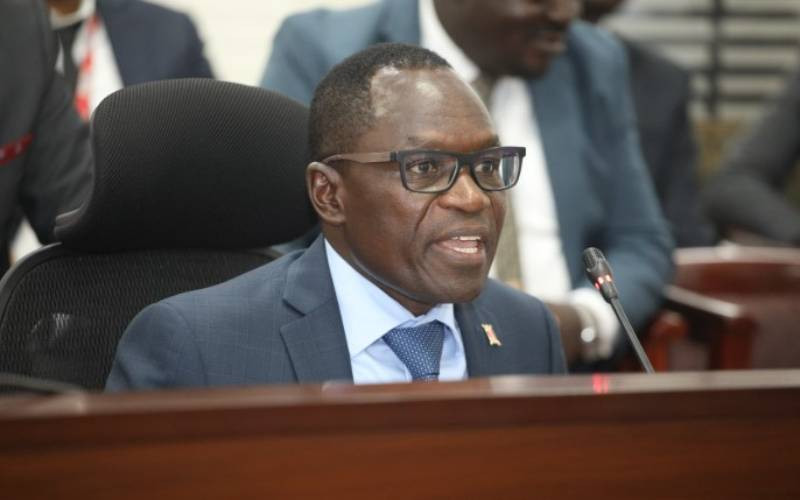Vetting panel puts President Ruto’s PS nominees to test

Several Principal Secretary nominees were subjected to intense vetting in Parliament, where members sought answers on pressing national concerns ranging from media freedom to health reform and the education system.
Among those who appeared before various House committees were Stephen Isaboke (ICT PS nominee), Dr Ouma Oluga (Medical Services), Prof Abdulrazak Shaukat (Science, Research and Innovation), Regina Akoth (Trade), Boniface Makokha (Economic Planning), and Cyrell Odede (Public Investments and Asset Management).
Other nominees included Jane Imbunya (Public Service), Michael Lenasalon (Devolution), Caren Achieng (Children Welfare), Aden Millah (Shipping and Maritime Affairs), Fikirini Katoi Kahindi Jacobs (Youth Affairs), and Ahmed Abdisalan Ibrahim (National Government Coordination).
The National Assembly Committee on Information, Communication, and Innovation focused heavily on issues around media rights during Isaboke’s session.
MPs raised concerns about media freedom, low wages for journalists, and pending government bills owed to media houses.
Isaboke, who pointed to his extensive experience in the media sector, was challenged on how he would protect media independence if confirmed.
He assured the committee that he recognised the critical role of the press and would not support any action that interferes with media operations.
“There should be freedom and accountability, especially on issues of national security,” Isaboke said, while affirming that media freedom is enshrined in the Constitution.
In the health sector, Dr Oluga faced tough questions about the Social Health Authority (SHA), the new health insurance body replacing the National Health Insurance Fund (NHIF).
While acknowledging existing difficulties, he defended the young institution and said it needed time and policy adjustments to function well.
“SHA and the Social Health Insurance Fund have been in existence for just six months. It is like comparing a person aged 59 to a six-month-old child," Oluga said.
He said the SHA already serves 21 million Kenyans and is a central pillar in achieving universal health coverage. “I fully support the shift. SHA now has 21 million members,” Oluga added.
Dr Oluga also noted the importance of improving policy and involving the public.
“We need to build consensus and seize the opportunity to involve everyone. I listen to complaints and examine their sources,” he said.
On education, Prof Abdulrazak Shaukat was engaged by MPs on the future of science and mathematics in schools.
Narok Woman Representative Rebecca Tonkei pressed him to state his position on whether mathematics should remain compulsory in senior secondary schools.
Prof Shaukat underlined the importance of STEM subjects and said a strong foundation in these areas is necessary for the country’s development.
“This country will not have innovators, entrepreneurs, and scientists if the subjects are not taught from the beginning. I believe learning science and maths is important,” Prof Shaukat said.
Meanwhile, two other nominees, Judith Pareno (Justice, Human Rights, and Constitutional Affairs) and Caroline Wanjiru Karugu (East African Community Affairs), are scheduled to appear before the vetting panels on Monday.
The National Assembly is expected to prepare and release reports on the nominees’ suitability next week, which will determine whether they assume their roles in government.
